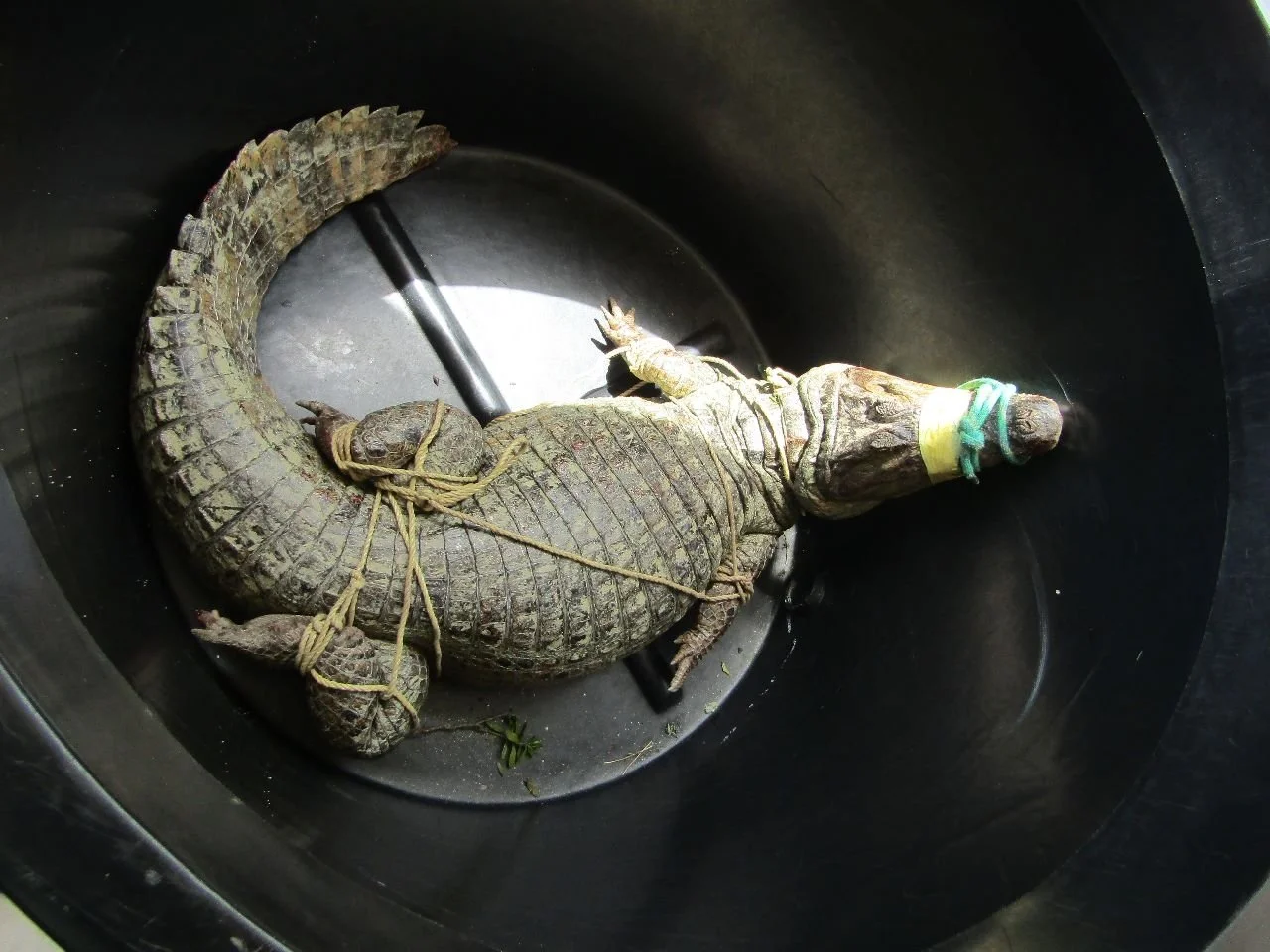
Wildlife Crimes
Illegal Wild Meat Consumption
Illegal wild meat consumption involves the unauthorised hunting, trading, preparation, or consumption of wild animals or their products, in violation of national laws or international agreements. Specific illegal practices include hunting wildlife outside permitted seasons or quotas, using prohibited or inhumane hunting methods, selling wildlife products in informal or illegal markets, and consuming wild meat sourced unlawfully or without proper health oversight. Across the Caribbean, illegal wild meat consumption frequently targets terrestrial species such as agoutis, armadillos, and deer, as well as aquatic species like glass eels and marine turtles, driven by motivations ranging from subsistence and traditional cultural practices to commercial demand.
The impacts of illegal wild meat consumption are significant, intersecting all five CAR-WEN core values. Biodiversity conservation is compromised as unsustainable and indiscriminate harvesting reduces wildlife populations, further threatening vulnerable species already impacted by habitat loss or environmental stressors. Animal welfare suffers severely as inhumane hunting, trapping, and slaughter methods cause prolonged suffering and unnecessary cruelty. Weak enforcement of hunting regulations undermines the rule of law, reducing public confidence in legal protections and complicating conservation efforts. Human well-being is negatively affected as communities lose ecological, cultural, and economic benefits provided by thriving wildlife populations. Additionally, unregulated wild meat consumption significantly elevates public health risks through increased exposure to zoonotic diseases and unsafe food handling practices.
Effectively addressing illegal wild meat consumption in the Caribbean requires culturally sensitive education programmes, strengthened wildlife management and enforcement frameworks, improved public awareness of ecological and health risks, and coordinated collaboration among conservation, public health, law enforcement, and community stakeholders. Sustainable solutions must recognise and balance ecological conservation goals with local socio-economic realities and cultural practices.
Related Blogs
Our blog section is growing. Check back soon for new posts related to this topic.
